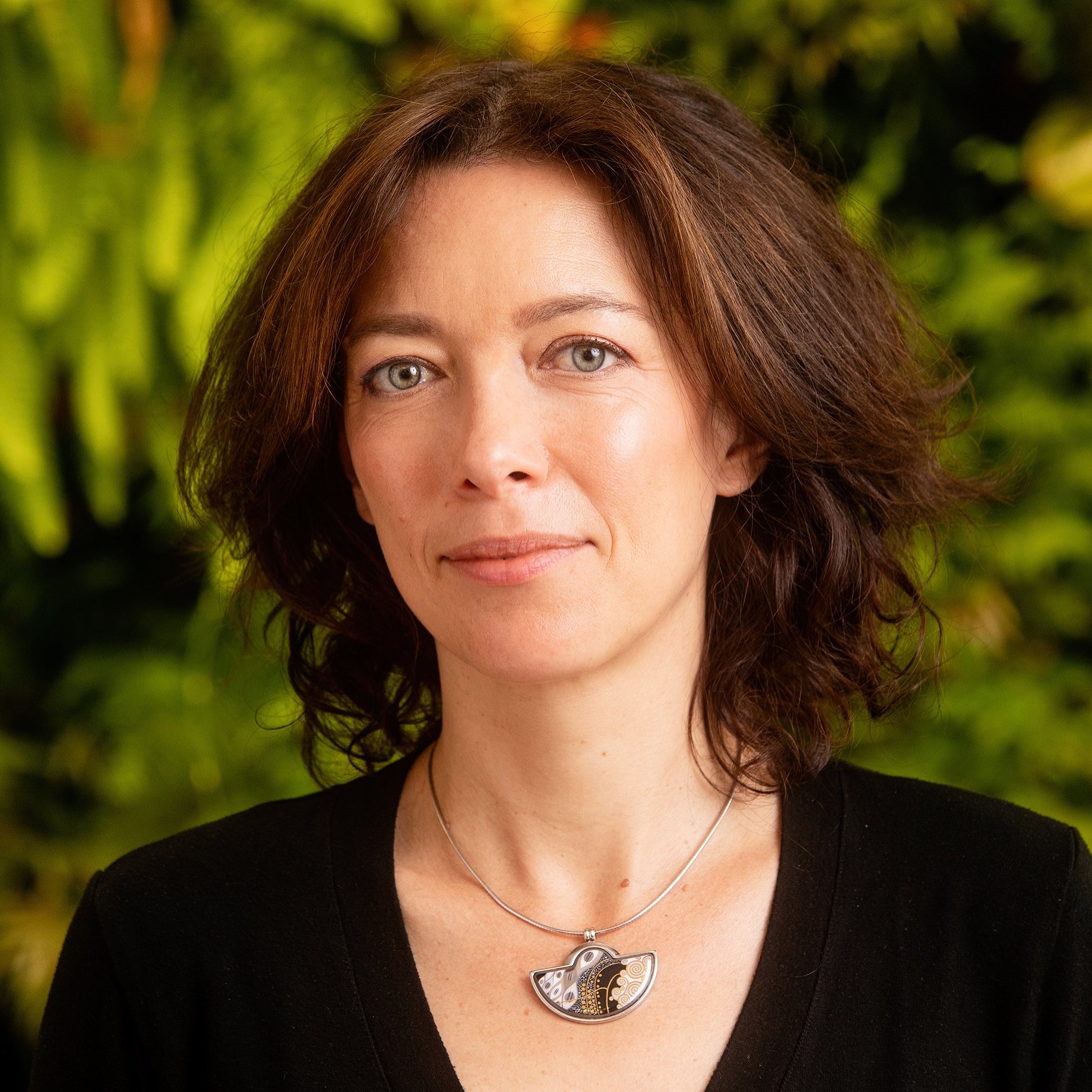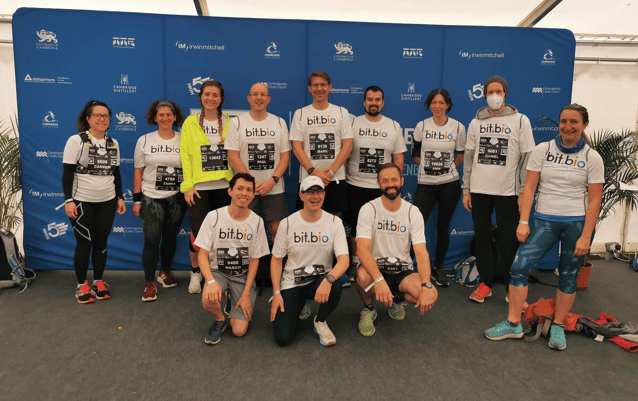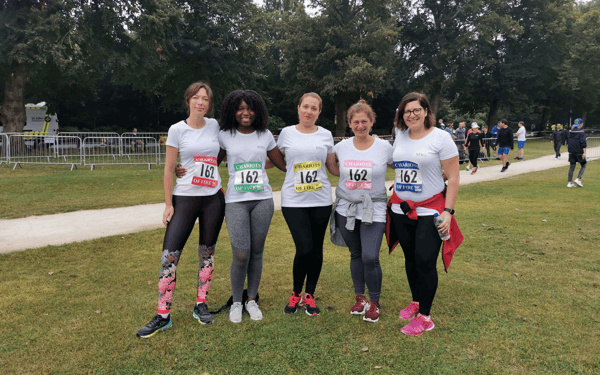13.05.2022 | Published by bit.bio

Name | Ania Wilczynska
Role | Head of Computational Genomics, Non-Clinical
Joined | 2020
Academic background | MSc Molecular Biology, University of Warsaw; PhD Molecular Biology Medical University of Warsaw and CNRS, studying the role of post-transcriptional control in gene regulation
Tell us about yourself? What is your background?
I come from a scientific family and had an itinerant childhood, following my parents from one country to another as they pursued their academic careers. This taught me a lot about interacting with people of different cultures, but also about self-reliance and adapting to change. My upbringing gave me an intuitive sense of the scientific method. I’ve always felt it is extremely important to genuinely care about the impact of the work one does.
How did you get your current role? What was the career path?
With my family background, it always seemed obvious I was going to go into science, and after an initial foray into chemistry, I experienced an epiphany in the first genetics lecture during my undergraduate studies. Subsequently, I spent quite a few years as a wet-lab biochemist. The next generation sequencing revolution of the late 2000s revived my interest in more mathematical approaches to biology. I began learning coding and educating myself in bioinformatic methods. Having become convinced this was an area of research I wanted to pursue full time, while working as a senior scientist at CRUK, I was fortunate enough to have support to pursue a part-time MSc course in Data Science. Going back to formal education while working full-time was challenging and occupied most weekday evenings and every weekend over a 2-year period, but in retrospect, was truly transformative for my career.
What struck me in my transition from wet-lab to computational biology was how there was often a lack of effective communication between the two seemingly inter-dependent disciplines. I have been able to apply my experience to bridge this gap and to train students and team members to create reproducible and insightful interpretations of data obtained from cutting edge high throughput methodologies.
Having always had an interest in real-life applications of science, and driven by a curiosity about how science can be done outside of the traditional academic setting, I began looking around for opportunities in biotech. My objective was to only apply for jobs where the science genuinely excited me, and that’s how I ended up applying for a position as Senior Scientist at bit.bio. Having taken on a wide variety of projects and responsibilities over my first year and a half at the company, I was promoted to Head of Computational Genomics, Non-clinical at the beginning of 2022.
Your team is built on computational biologists with diverse skill sets who work together to lead decisions and analysis in the discovery and characterisation of reprogrammed cell lines. Tell us more about what you do and how you are leading your team. What’s it like to work at bit.bio in your team?
The identity of different cell types is primarily determined by the activity of their genes. Most of the ~20 000 genes of the human genome can take on a number of alternative forms (isoforms) and each of these will interact either genetically or biochemically with a plethora of other genes. In addition, these are all regulated and altered in space and time. This means that the genetic and biochemical landscape of a cell is an incredibly complicated network of interactions that can nonetheless be mapped and understood using mathematical and statistical modelling of huge data sets generated by high-throughput sequencing approaches.
The bioinformatics team provides key insights into every step of our scientific discovery pipeline. We create predictive gene regulatory network models using complex cell atlases, establish the cellular identity of our reprogrammed lines during development and production, as well as provide key insights and data to our customers.
We’ve built a team with a real breadth of computational biology experience, which allows us to approach every bioinformatic question in an agile way. It is important for me that the team maintains excellent communication both internally as well as engaging with colleagues in other teams. Reproducibility and data integrity is at the core of any good bioinformatic infrastructure and this reflects the key goals of bit.bio’s products.
.jpeg?width=636&height=525&name=Blooper%20Photobooths%20-%20bitbio%20-%2020220313_000232%20(1).jpeg)
Ania at the bit.bio party with the Bioinformatics Team.
What would you consider good skills and qualifications for your job? And how do you use them on a day-to-day basis?
My significant track record in designing and performing experiments as well as biological interpretation of data allows me to provide value beyond data analysis. This is a key strength of the whole team and allows us to act as equal partners in all steps of bit.bio’s product development pipeline.
Being goal oriented and having a strong attention to detail is critical in bioinformatics, especially given our tight deadlines and fast turn around times. My problem-solving skills have allowed me to develop a vision for our computational infrastructure, which is heavily automated and ensures we deliver our analyses in a timely fashion.
.jpg?width=638&height=425&name=bit.bio_Canteen_May22_Pic0014%20(1).jpg)
Ania in the bit.bio office space.
What achievement are you most proud of and what are your future goals?
Making the transition from wet lab biology to bioinformatics as an experienced researcher is certainly something I’m extremely proud of. It required perseverance and drive. Leaving academia after many years for a bio-tech start-up also necessitated a certain change of mindset; I feel I have adapted exceptionally well and have enjoyed every day. I’m very proud of how we have managed to build a versatile and well-integrated team of computational biologists with complementary skills covering all aspects of bioinformatics. Building my own team is something that I always wanted to do and it has been an exciting and rewarding experience. I look forward to expanding my team so that we can explore many more areas of computational biology in the field of stem cell reprogramming.

Ania with the members of bit.bio team running the Cambridge Half Marathon.
What do you do in your spare time?
Keeping active means I not only feel healthy, but also have a great way to unwind. At the start of the pandemic, I began running more regularly and over a few months built up my distances. Aside from my regular training runs, I now do a half marathon run almost every weekend. bit.bio has some great sports initiatives, and I’ve run the Cambridge Half Marathon twice with a fantastic group of colleagues.
Molecular biology and cooking always seemed to me rather similar activities, and while my days at the bench might be over, I remain a keen cook and baker. My inspiration is drawn from my travels – my partner and I particularly enjoy travelling around South and South-East Asia, Southern Africa and the deserts of the Western United States.

Ania with the members of bit.bio team running the Chariots of Fire Race.